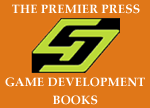AIM
Welcome!
My Coursework
and Game Projects
People Interested in Going to DigiPen:
(for the Computer Science program, not Art)
If you are thinking that you might want to go to DigiPen, here is my advice to you. The one thing that you should be absolutely sure of is that you like programming. At DigiPen, and in the industry, you will spend the vast majority of your time - or, more accurately, your life - staring at a computer screen and coding something. So making sure that you enjoy it is essential. Also, and this might seem obvious to some people, programming games and playing games are very different experiences. Just because you like playing games doesn't necessarily mean you will like programming them. Many people tend to get the impression that making games is like being in a fun and games arcade club, when it reality this field is very technical in nature and requires high compotency in math and computer science. So, before applying to DigiPen you should definately make sure you like programming and not just playing.
If you have never done any programming before, and would like to give it a try in your spare time, my advice would be to pick up a copy of Microsoft Visual C++ - Standard Edition, and the book Teach Yourself C in 21 Days. Either that or take a programming class at your local school or college. DigiPen also recently lauched Project FUN - a special software program that is made to help you learn the basics of programming games - and that could also be a good way to start. C/C++ is the language used by DigiPen and by many companies in the industry, so it is a great language to familiarize yourself with. Links are listed below.
Also, there are some people that get the impression that learning to make games involves learning a lot about game design. The thing about game design is that it is such a new concept that there really isn't enough information about it to teach. There are only a small handful of books that even go anywhere near game design, almost all of which were published less than five years ago, and almost all of which acknowledge that game design is a brand new artform that is still making its baby steps. There are a few classes (very few) at DigiPen that talk a little bit about Game Design, however they mostly do it by comparing it to more mature mediums - such as film, painting, and books - and spend very little time discussing the games themselves and instead spend most of their time discussing the mature mediums.
When it comes to the technical side of making games, however, major advancements in computer technology - both on the hardware and software levels - have been made in the last few decades, and are still being made today at a rapid pace. Entire sections of bookstores and libraries are filled with books about programming, computer animation, and computer science. All of these subjects are based on high-level mathematical concepts. Most of the time, when a new game comes out most of its major features revolve around taking advantage of these new technologies (prettier graphics, more robust physics models, more atmospheric sounds, and better lighting effects to name a few). Because of this, when you learn about making games you spend that vast majority of your time learning about computer science because there's so much information in that area that needs to be digested before you can start thinking about how you're going to use it in your game designs. There is no such thing as a musician that cannot play any instruments, and there is no such thing as a Game Designer that cannot program computers. Computer Science is the major feature of the DigiPen program.
Prima's Book Series and Project FUN
Microsoft Visual C++ - Standard Edition
Teach Yourself C in 21 Days
Front Page Last Updated: 1/22/04










